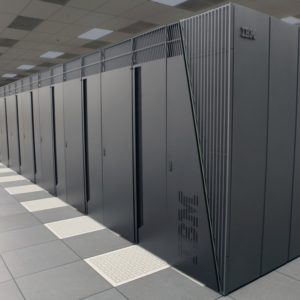Abilities in a Continue: What You Need to Property Machine Understanding Jobs

Following artificial intelligence (AI), machine learning is currently the one that’s generating a buzz across industries and technology. It’s becoming a household name, yet many are still unaware of it and its role in our personal and professional lives. Hence, for a better understanding of machine learning, here’s a quick rundown of what you need to know about it as a job seeker.
Description
As defined by TechEmergence, a resource for business applications of AI, machine learning is the science of getting computers to learn and act as humans do. Likewise, it aims to enhance their knowledge over time by feeding them data through observations and real-world interactions. In fact, it’s a subset of AI, enabling computers to perform tasks such as recognition, diagnosis, planning, robotics control, and prediction without specific programming.
Machine Learning Career Paths: Data Analyst vs. Machine Learning Engineer
While they belong to the same field, it’s essential to understand the differences between them. As a data analyst, your role is to research data to tell a story and generate actionable insights, says Udacity. Therefore, your focus will be on data dissemination through charts, models, and visualizations with humans as your audience.
In contrast, the machine learning engineer’s final output is a working software with additional components that run autonomously with minimal human intervention as the audience. In particular, machines make decisions that impact how the service or product will behave.
Key Machine Learning Skills to Acquire
If you’re up to the challenge and have an interest in working as a machine learning professional, here’s a list of must-have skills on a resume from Medium and ITCareerFinder.
Basic Skills
For starters, skills in mathematics, data science, and software engineering are essential. Otherwise, these domains will help you test your mettle.
- Statistics and Probability
- Data Modeling
- Linear Algebra
- Calculus
Soft Skills
Before diving into the technical aspects, you’ll need these soft skills to thrive and have a long career in this field.
- Ability to Learn New Skills
- Time Management
- Business/Domain Knowledge
- Communication
- Rapid Prototyping
Programming Skills
Like any modern technology, expect to create dynamic solutions in the field over time. Additionally, machine learning will test your programming and software development skills that focus on analysis and design fundamentals.
- Fundamentals of Programming and Computer Science
- Software Design
- Applying ML Libraries and Algorithms
Programming Languages
Machine learning libraries support various programming languages. Therefore, choose only what you’ll learn. However, it’s wise to understand each and their pros and cons.
- C/C++
- R
- Python
- Java
Industrial sectors Influenced simply by Machine Understanding

Below is a list of industries from SAS. Similarly, these industries use or are planning to use machine learning-enhanced computers to operate more efficiently and gain an edge over their competitors.
- Financial Services
- Government
- Health Care
- Advertising Sales
- Oil and Gas
- Transportation
Now is the time to put your advanced computer skills to use! Especially as industries strive for innovation and automation, the demand for professionals and engineers will increase. Moreover, machine learning is undoubtedly a part of the future. Therefore, if you have what it takes to act on it, you could be a part of that future as well.
Sources: TechEmergence | Udacity | Medium | ITCareerFinder | DZone | SAS
Photo through Pexels
Related Posts:
How Best Resume Services Help IT Specialists Land work
ten Tips to Creating a Top Continue for I . t Careers


